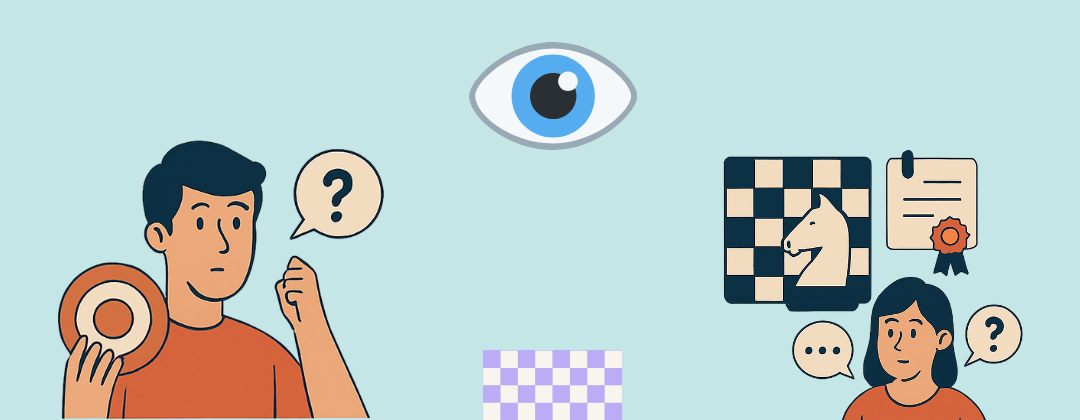What to Look for in a Good Chess Coach (or Academy)
Chess isn’t just about moving pieces. ♟️
It’s about mindset. 🧠
Discipline. 🧘♂️
Confidence. 💪
And the right coach can shape all of that.
So before you sign up for the next chess class that shows up on your feed—pause.
And ask: What am I really looking for in a coach?
Start with clarity:
You need to know what you want.
Do you want to win tournaments?
Do you want to improve your online rating?
Do you want to play for fun, but with structure?
A good coach will help you clarify your goals—then build a plan around them.
They won’t throw random openings at you. They’ll say: “This is where you are.
Here’s how we’ll get you to the next level.”
 Deep knowledge matters:
Deep knowledge matters:
Chess isn’t guesswork.
Your coach should have serious credentials:
Titled players. Tournament experience. Years of teaching.
You don’t need a Grandmaster—but you do need someone who’s walked the path you want to walk. Someone who’s studied the game deeply—and knows how to teach it simply.
Structured, not scattered:
Great coaching is never random.
It’s systematic:
Tactics this week.
Endgames next week.
Opening prep before your tournament.
Look for an academy or coach that offers a well-defined curriculum—not just “play and learn” sessions.
Good coaching builds layer by layer.
Communication is everything:
You should feel comfortable asking questions.
Your coach should explain concepts in ways you actually understand.
It’s not just what they say—it’s how they say it.
Do they simplify complex ideas?
Do they give clear feedback?
Do they follow up on your progress?
If not, learning becomes frustrating fast.
Passion is contagious:
This one’s underrated.
A coach who lives chess, who gets excited about a beautiful move or a tricky puzzle—will make you fall in love with the game too.
Because when your coach enjoys the journey, so will you.
Engagement over lectures:
Great coaches don’t just “teach.”
They involve you.
They’ll ask:
“What were you thinking here?”
“Why did you choose this move?”
“What’s another option?” They turn every class into a conversation—not a monologue.
Tech-savvy is a bonus:
We’re in 2025.
A strong academy uses online tools, progress reports, digital boards, game analysis software—and knows how to make learning visual, fun, and effective.
Look for accountability
Coaching is not just about knowledge transfer.
It’s about accountability:
Are you doing your homework?
Are you applying what you learned in games?
Are you moving forward?
A good coach checks in. Pushes you. Tracks your progress.
Not just shows up once a week and leaves.
At the end of the day, a coach isn’t just teaching you chess.
They’re shaping your approach to learning.
Your patience. Your discipline. Your ability to think, pause, and decide.
So choose wisely.
And remember:
The right coach doesn’t just help you win games.
They help you grow.
And that growth? It only happens when you show up.
Your efforts matter—a lot.
— Mr. Vaishnav Jangam
































